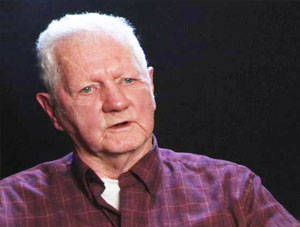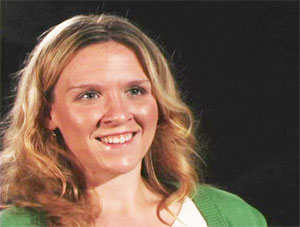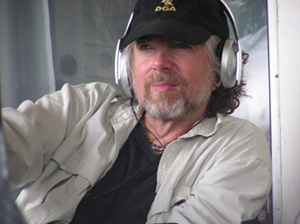Colby-Sawyer College Hosts Screening of 'After the Fog: Interviews with Combat Veterans' with Introduction, Discussion by Filmmaker Jay Craven
NEW LONDON, N.H., Nov. 11, 2010 - Colby-Sawyer College will host a screening of the 2006 documentary film “After the Fog: Interviews with Combat Veterans,” with an introduction by its director and producer, Vermont filmmaker Jay Craven. The film chronicles the stories of 11 combat veterans, most of them Vermont residents, who served in World War II, Vietnam and Iraq. Craven will answer questions following the screening.

The screening, sponsored by the Cultural Events Committee, will take place on Monday, Nov. 29, at 7 p.m. in Wheeler Hall at the Ware Campus Center. Admission to this event is free, and the public is invited to attend.
“After the Fog” features Army Ranger Curtis Whiteway, who was awarded three Purple Hearts for service during the Battle of the Bulge in WWII, in which just 20 of the 250 soldiers in his battalion survived. Other veterans include Cliff Austin, who was drafted into the Army as a high school junior and sent straight to the front, where he was captured and held as a German prisoner of war for more than a year.
Another is David Underwood, who lost part of his foot while working as a helicopter crew chief in Vietnam; Bob Miller, who fought in northern Africa and Italy and helped to produce the film; and young Iraq War veterans Jonathan Miller and Abbie Pickett. Their stories span the decades of American involvement in international combat and come together to create a vivid glimpse at the military recruitment, training, combat and reintegration processes.

The film's title, “After the Fog,” was derived from the phrase “the fog of war,” which refers to the chaos of war and its ability to cloud the thinking of people caught up in the violence. The film focuses on veterans' perspectives on combat now, years after their discharge, when they are able to reflect clearly on their experiences.
Recalling their days in the armed forces, the veterans recount lessons they learned and the camaraderie they still share with fellow veterans. One of Craven's goals with “After the Fog” was to go beyond Hollywood dramatizations of war to create a simple and honest oral history of combat told by those who experienced it first-hand. He explains, “The vets we interviewed were unguarded and generous beyond anything I'd expected. Their detailed specificity and openness 'captures the moment.'”
Co-founder of Kingdom County Productions, Craven is an award-winning writer, director and producer. His films have been featured at more than 40 international festivals, including Sundance, and have been honored with numerous awards, including two National Endowment for the Arts Regional Film fellowships for “Gayleen” and “High Water.”
Craven's films range from fictional narratives and documentaries to television series, and many of his productions tell local stories from Vermont. His films typically feature a troupe of New England actors, including Tantoo Cardinal, Bill Raymond, Rusty DeWees and John Griesemer, but he has also worked with well-known actors like Michael J. Fox, Rip Torn, Ernie Hudson, Treat Williams and Martin Sheen.

Craven credits his films' successes to his dedication to the fundamentals of filmmaking, especially writing and directing. By focusing on these basics, he has been able to produce quality films with modest resources. He also cites creative collaboration as an important aspect of producing successful films; he believes actors, cinematographers, lighting specialists and designers must collaborate for the sake of art and productivity.
In addition to his career as an independent filmmaker, Craven has also developed a public speaking career. Now a seasoned speaker who has been featured at hundreds of community and college venues across the country, he started speaking on tours in the 1970s with Noam Chomsky, Howard Zinn, Jane Fonda and others to spark the civil disobedience movement against the war in Vietnam. During this time, he also testified for the anti-war movement before the U.S. Senate Foreign Relations Committee and helped lead the 1971 May Day protests in Washington, D.C.
Craven joined Marlboro College in Vermont in 1998 and is a tenured professor of film studies. In addition to teaching the basics he relies on for his own filmmaking, he also stresses the importance of collaboration inhis teaching. “I'm working to build a cross-collaborative film program that draws on Marlboro's impressive resources of filmmakers, actors, musicians, writers, photographers, and visual artists,” he says.
-Jessica McLavey '10


